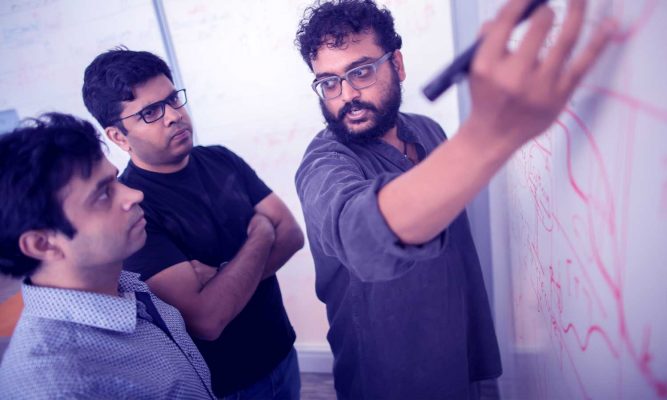Our expert biostatisticians, computational biologists, and knowledge systems engineers are driving innovation to Defy Cancer by creating and employing tools to leverage patient and genomic data into actionable treatments.
Cancer is a complex set of diseases, with myriad genetic and biological underpinnings, symptoms, drug interactions, and treatment side effects. The revolution in genomic technologies gives scientists the unprecedented ability to mine the cancer genome, as well as the mountain of clinical data we partner with our patients to collect. The ability to curate and analyze this data has a substantial impact on the lives of current patients, while empowering researchers to make discoveries to transform cancer care for future patients.
MatchMiner, an award-winning Dana-Farber innovation, is the world’s first open-source platform for matching patients to clinical trials using genomic and clinical markers—using data science to ensure patients have customized cancer care. We now want to employ machine learning to scan handwritten patient notes and automatically extract crucial data into formats that enable ready analysis.
For example, our teams recently used machine-learning tools to interpret the text of radiology reports from more than 1,000 lung cancer patients. By building a database of outcomes to help “train” the machine-learning software to interpret text, they found that the software could generate outcome descriptions similar to those from radiologists—and dramatically faster. Human curators took about 20 minutes to annotate a single imaging report. In half that time, the computer models could annotate 30,000 imaging reports.
Advanced statistical analyses will filter and translate data into diagnostic assessments and treatment recommendations. Artificial intelligence will help unlock potentially revolutionary insights by identifying patterns not readily apparent to humans. And while we can already pinpoint mutations driving many individual cancers and identify which treatments might help, investments will catalyze clinicians’ ability to act on this information more quickly to save more lives.
For more information or questions, please contact Mark Veligor.



